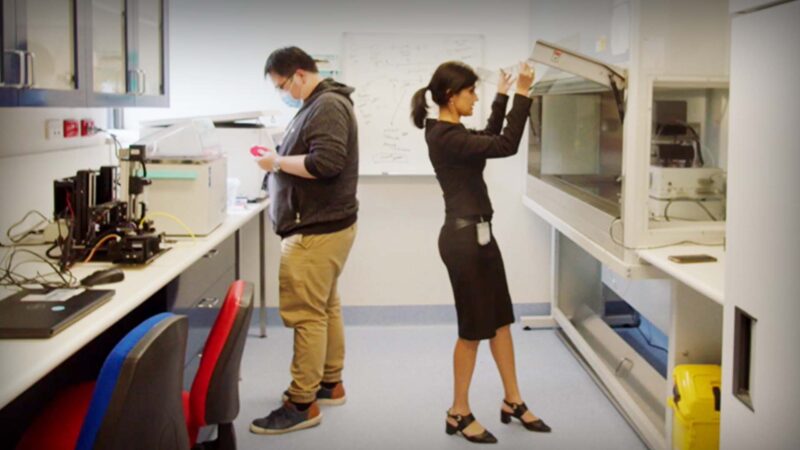A Deloitte study on General Practices in 2019 predicted an increase in unmet medical needs and a decrease in the medical workforce. The study discussed new models of care with interdisciplinary team care including nurse practitioners and community paramedics. Australian Health Journal spoke with the Australasian College of Paramedicine on the role paramedics can play aside from delivering emergency care in transit.
John Bruning is the CEO of the Australasian College of Paramedicine, which has been representing the paramedicine profession in Australia and New Zealand for more than 50 years. According to John, there have been exciting developments in the paramedicine and health fields the past year.
The scope of practice review, as well as the Federal Government’s efforts to improve patient outcomes through multidisciplinary team care, have been particularly noteworthy. While paramedics have traditionally been associated with emergency response and ambulance services, the review has highlighted the potential for them to play a significant role in supporting the healthcare of local communities.
Bruning points out paramedics have the opportunity to play a key role in supporting healthcare and improving patient outcomes. Paramedics should be utilised more widely in urgent care clinics to improve patient outcomes as they are experts in urgent, acute, unplanned care.
Despite being seen primarily as emergency responders, paramedics have long been providing care in the primary care space. As such, their increased involvement in primary and urgent care is a natural progression that can lead to improved health outcomes for communities. Urgent care clinics, which treat non-life-threatening injuries and illnesses, have been a recent introduction. However, when these clinics were initially proposed, paramedics were left out of the opportunity, despite being experts in urgent, acute, unplanned, and unscheduled care. They work in these types of situations every day in the ambulance service and should be utilised in these clinics to improve patient outcomes. Working as part of multidisciplinary teams with doctors and nurses can further enhance the outcomes for local communities.
Discussing with Australian Health Journal, Michelle Murphy, the Advocacy and Government Relations Lead for the Australasian College of Paramedicine, says that having a sustainable health workforce is essential for improving access to healthcare. Paramedicine is currently the fastest-growing health workforce, growing at 9% per annum for the last four years. Urgent care clinics are filling the gap between family or primary care and tertiary or hospital-based care and reducing the pressure on emergency departments and ambulances. Paramedics are well-placed to work in these clinics, delivering ad hoc unplanned clinical care when it is urgent but not an emergency. Multidisciplinary teams improve access to care by enabling communities to think about the health providers they need and bringing together different providers to work together to deliver care in communities.
Murphy references a study involving Associate Professor John Adie at the University of the Sunshine Coast. As Assoc Professor of Urgent Care, Prof Adie talks about the workforce of General Practitioners at the time predicted to decrease by 25% from 2019 to 2023, while the unmet need was expected to increase by 38%. Some countries are adopting new models that involve nurse practitioners and community paramedics as part of the workforce. These practitioners will be able to assist GPs in seeing patients with non-life-threatening urgent conditions.
You Might also like
-
Surgeon-scientist path laid for medical device research
In 2022, Distinguished Professor Gordon Wallace AO and Professor Mukherjee jointly established Beyond Science as a clinician led, academically supported and clinician run Australian-first medical technology translation program.
The program is aimed at early career researchers and clinician-scientists working in medical device research specifically in otolaryngology (ear, nose, and throat), head and neck surgery.
-
Occupational therapy creates profound impacts on client and patient lives
Margeaux Bartholomew-Carle is an Adelaide based registered Occupational Therapist and the Founder and CEO of Ardant.
Throughout her career, Margeaux has worked in various settings, including aged care, disability, assistive technology, prescription, and mental health. This diverse experience has deepened her understanding of the different needs among client groups.
-
Delivering anaesthetic services to countries where surgical services can’t be provided
Dr Wendy Falloon is an Anaesthetist of over 30 years experience and a Fellow of Australian and New Zealand College of Anaesthetists (ANZCA). She studied medicine at the University of Tasmania, and worked in Hobart, Sydney and the Uk while completing her specialist qualifications. Her primary professional focus has always been to deliver the best possible experience of anaesthesia to each and every patient, and for them to know that she sees and values them, and their stories.
Having been born in Africa, she realised even as a child that health and wealth were largely a product of where people happen to be born. This sowed the seed of her ongoing desire to be of help to others in less fortunate circumstances, ultimately leading to her volunteer work with the Mercy Ships charity. This is one of the most fulfilling aspects of her career, and she has volunteered in Africa with Mercy Ships 8 times since 2014.



